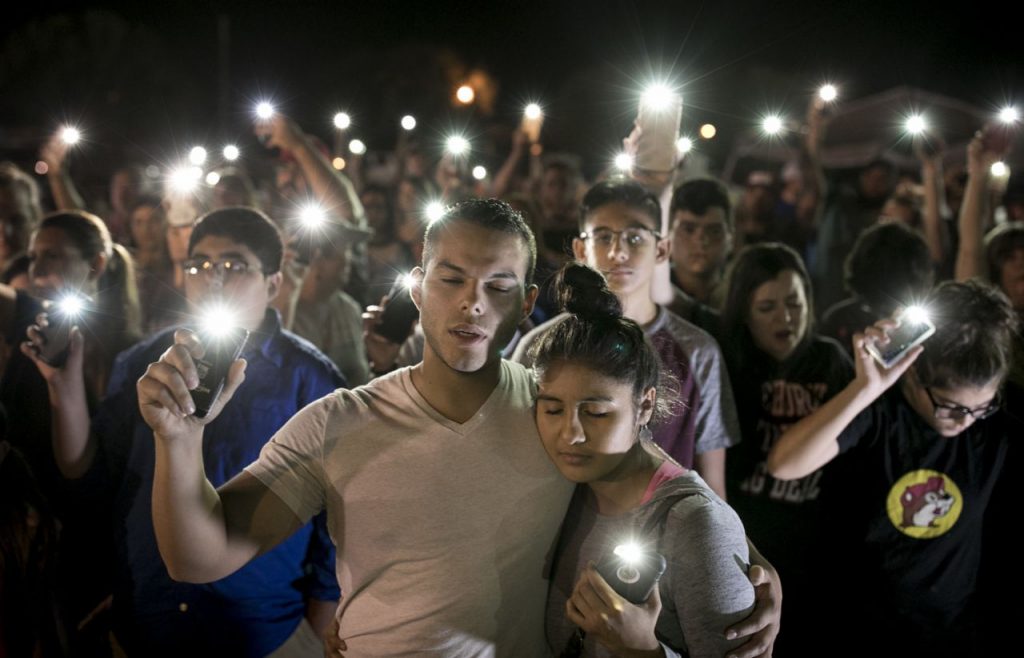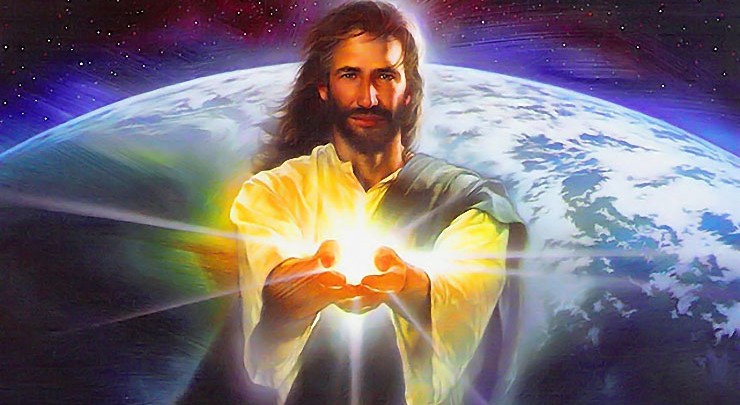Redemption
The Devil’s Advantage & Christ’s Eternal Hope
The most horrific church massacre in U.S. history at First Baptist Church in Sutherland Springs, Texas reveals many things.
We sadly see the face of evil once again and the carnage that comes from it. We view the heroism of the Good Samaritans who shot and chased down the despicable murderer.
We hear the clamor for stricter gun laws and the response that no laws could have prevented this crime and that Texas-carry laws actually prevented more deaths.
But what are the larger lessons? I submit they include the devil’s momentary advantage and Christ’s eternal hope.
How Jesus Changed the World: Part 2
Happy week after Christmas. Hope you had a wonderful holiday of worship, reflection, celebration, and special time with family and friends.
It was all made possible through the coming of Jesus–and in this, the third part of our trilogy–we finish our brief discussion on his amazing impact on the planet.
Here are eight more areas where the life of Jesus changed the world. Read More
The Greatest Week in History: A Lesson in Humility
 Pride is one of the ugliest things in the universe. It’s what led to the fall of Lucifer from heaven, and allied with the invective of murder, was the motive behind the Brussels massacre this week.
Pride is one of the ugliest things in the universe. It’s what led to the fall of Lucifer from heaven, and allied with the invective of murder, was the motive behind the Brussels massacre this week.
On the presidential election front, both front runners of the Democrat and Republican parties regularly demonstrate the attitude of pride in either name-calling childishness or not telling the truth.
Would you agree there’s an abundance of pride in our world today?
This Holy Week–the greatest week in history–let’s look the opposite direction for inspiration from the life of Jesus Christ and others that follow him. He never displayed arrogance, never acted nastily, or ever told a lie.
Let’s learn a lesson in humility.
I must confess that the Boehme family and even my ethnic heritage (German) is susceptible to the sin of pride. Early on I realized that pride was one of my “easily besetting sins” (Hebrews 12:2), and if I wanted to grow in God, I needed to let him expose and crucify it in my life.
To some extent, He has been victorious in that process of sanctification.
Still, I must constantly be on guard against pride rearing its ugly head. I have found that learning from and being filled with Jesus is my only hope of character salvation.
So this Easter week–the greatest week of all time–when Jesus Christ arrived in Jerusalem to die for the sins of mankind (for our corporate pride) and then rise from the dead (He is Risen!), it might be beneficial to take a crash course in one of the Godhead’s most incredible qualities.
Humility.
Here’s my take on how humility, meekness, or a humble heart shows itself in a human life.
Characteristics of Humility
A servant’s attitude
Because humility is a lowliness of heart and mind, it shows a willingness to serve and lift up others. Jesus said in Mark 10: 43-44: “Not so with you. Instead, whoever wants to become great among you must be your servant, and whoever wants to be first must be slave of all.” Humility is the antithesis of narcissism. It always seeks to serve, not dominate.
A non-defensive or reactionary heart
Humble people are relaxed in who they are. Defensiveness is almost always a mark of pride showing a lack of relaxation in the truth. When Jesus was confronted by Pontius Pilate and Herod he didn’t defend himself. He didn’t have to. He knew who he was.
A quiet, teachable spirit
1 Peter 3: 4 tells us that real beauty “should be that of your inner self, the unfading beauty of a gentle and quiet spirit, which is of great worth in God’s sight.” When you have that type of heart, you are able to receive reproof: “Do not rebuke mockers or they will hate you; rebuke the wise and they will love you” (Proverbs 9:8). Humble people are teachable and easy to be around. Remember the boy Jesus, anxious to learn from the teachers in the Temple?
Self-less interest and speech
Humble people don’t think about themselves, they put others first. We taught our young kids the rightness of J. O.Y. Jesus first, Yourself last, and Others in between (J.O.Y.) Humble people don’t talk about themselves because they don’t think about themselves. They are others-centered. Philippians 2: 3, 4 says, “Do nothing out of selfish ambition or vain conceit. Rather, in humility value others above yourselves, not looking to your own interests but each of you to the interests of the others.” That’s the attitude of Christ Jesus (2:5).
Submissiveness
A humble person sees their own short-comings and welcomes the strengths of others. Ephesians 5:21 tells us to “Submit to one another out of reverence for Christ.” Having a submissive attitude toward other people is an incredible mark of strength. A humble person can relax on their “level” of authority knowing that “authority is given by God on the basis of humility” (Loren Cunningham).
Not interested in power
Humble people are not drawn to power–which is dangerous stuff. They desire to help and bless the lives of others–in fact, give up all power and lay their lives down for the sake of others (Philippians 2:5-11). Imagine what power Jesus gave up in heaven to be born in a dirty stable, live a peasant life, and be tortured and die via crucifixion. Humble folks love helping others–not pomp and circumstance that flatters the ego.
Love for people and interest in blessing them
Paul tells us in Ephesians 4:1-3 – “to live a life worthy of the calling you have received. Be completely humble and gentle; be patient, bearing with one another in love. Make every effort to keep the unity of the Spirit through the bond of peace.” When we are humble, we will make people feel comfortable and safe–not flaunt them with our gifts or stare them down with our eyes. Humility looks up–not down.
Obedience
Jesus obeyed his Heavenly Father in everything out of a humble heart. Then he told his disciples,
“So you also, when you have done everything you were told to do, should say, ‘We are unworthy servants; we have only done our duty'” ( Luke 17:10). Humility always does what’s right. It is opposite of the spirit of anarchy or demanding rights. Humble people love to obey.
A thankful and grateful spirit
A humble person understands he or she is a sinner, deserves nothing, and deeply appreciates God’s grace. 1 Thessalonians 5:18 encourages us to “Give thanks in all circumstances; for this is God’s will for you in Christ Jesus.” Jesus never sinned, but his life was filled with thanksgiving and praise. That’s the constant attitude of the humble follower of His.
A tender conscience toward sin
It is understanding we have sinned and fallen short of God’s glory that humbles the heart and keeps it in a posture of hating and rejecting sin. David displays a humble conscience in Psalm 51 and declares that “the sacrifices of God (what He likes) is a broken and contrite spirit.” Great definition of humility. James Madison said that “Conscience is the most sacred of all property” because it keeps us humble and on track with God.
No desire for applause or publicity
William MacDonald reminds us that Jesus was “psychologically impervious to the popular prise of himself–it did not inflate him–and to negative criticism of himself–it did not deflate him.” He humbly knew what His Heavenly Father thought about at all times. When you’re focused on God, you don’t hear the blather. Humility deadens the ear to self and reputation.
Honesty and Transparency
Jesus told us humble people are willing to be known for who they really are. He said in Luke 18:13, “But the tax collector stood at a distance. He would not even look up to heaven, but beat his breast and said, ‘God, have mercy on me, a sinner.’” Pride covers up and erects walls. Humility allows in the sunlight with joy.
Courteous and respectful
Note all the rioting and ill manners that are common in our nation today. They reveal nothing but self-centered pride–not humble love. 1 Corinthians 13:5 says that real love “does not dishonor others, it is not self-seeking, it is not easily angered, it keeps no record of wrongs (Romans 13:1-7)” A mark of a humble person is great manners and personal self-control–perfectly seen in the life of Jesus Christ.
Child-like heart
The people of Jesus’ day (and ours) had it backwards. Adult-like cynicism is bad. Child-like sincerity is good. Jesus put a child on his lap and declared, “Unless you change and become like little children, you will never enter the kingdom of heaven. Therefore, whoever takes the lowly position of this child is the greatest in the kingdom of heaven” (Matthew 18:3, 4). Humble folks who focus on God and others are not skeptics.
Natural and real
A humble person doesn’t try to be humble—they just are—from the heart. Humility, in its basic essence, is living in reality, not being more than you are, which is pride, or being less than you are, which is self pity. Both sides of the coin of self is pride. When we are humble, there is a naturalness to our attitudes and actions that encourages those around us.
Self-sacrifice
It was self-sacrificing humility that took Jesus Christ to Calvary some two thousand years ago. Humility not only prefers others, it is willing to lay down its life for them out of love.
I hope you get the point. Pride is full of self. Humility is full of God and other’s concerns. Our world desperately needs to learn from Holy Week that the way to change the world is not through power, pride, anger, and revolution.
It’s through a changed heart who learns from Jesus.
Matthew 11:28-30:
“Come to me, all you who are weary and burdened, and I will give you rest. Take my yoke upon you and learn from Me, for I am gentle and humble in heart, and you will find rest for your souls. For my yoke is easy and my burden is light.”
This week we commemorate the greatest week in history. Happy Easter as you love and emulate the humble, servant King.


